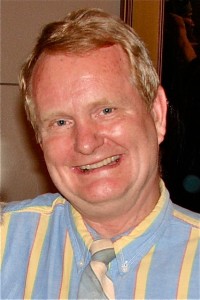Carrying the Message
By Bruce Ario
With the onset of my illness, I felt I had a lot to prove. What it boiled down to is that I had to prove my self-worth. My ego required some kind of reaction to my diagnosis of schizophrenia.
At first my reactions were private and clandestine. I felt and saw things only I could feel and see. For the most part, others had no idea about what was going on with me because I didn’t say anything. I related all of that type of information to my guardian angel and not too many others. I was in what is known as denial.
At some point down the road, I began to take a new stance. I began to communicate with others about my illness. At first it was with the mental health professionals, then my parents, then my brothers, then my friends, and eventually the public as a whole.
I decided to open myself up because I saw I was being passed over by too many people. I couldn’t really blame them because they didn’t know; I hadn’t told them.
In my head mental illness was a big factor. In others, it was a non-factor. That was primarily because no one else knew. (Some of the time I still held them accountable because I thought they could read my mind; that’s a different article.) I guess my sharing started out gradually and with a lot of coaxing. I still remember a friend telling me that he didn’t believe anything I had said or done couldn’t stand to see the light of day. That statement gave me a lot of courage that I could finally say what was on my mind.
So I started out. I began to talk about the illness with others. I knew I had to have a method for doing this because I had a lot to say and a lot of it was not pretty. I didn’t want to alienate myself from others in the very moment I was trying to draw closer. I found that the best method was equal sharing—let someone else share about her life and then I would share about mine. That was how it began.
Not long after I started to come out with my story, I began to be asked to speak publicly about it which I did.
In fact, in one series of speeches, I spoke to every police officer in the city of Minneapolis. I was revealing the illness to them. That is the key. I was revealing the illness which is just one aspect of my life. Therefore I wasn’t losing my privacy because it was a medical condition I was talking about, as if I were talking about cancer. I became able to see my situation as a medical phenomenon and not as any sort of shortcoming.
Seeing my condition as a medical one gave me the wherewithal to talk about the illness in very straight forward terms, and the ability to fully describe what was going on with me.
I thought of this as a good thing because it was a learning situation for everyone. I found that people were interested, and I found I could learn from it myself.
So these days I am still telling my story. I try to pick my spots carefully, but I will seize an opportunity whenever I can.
The important thing is to keep it clear and to know my audience. I have been in situations where I revealed too much and it sort of backfired on me. Yet, most of the time I’ve experienced a real satisfaction from telling my story.
I find that, if people know, they’ll be less likely to tread over me; instead, they will honor my story and deal with it appropriately. There are a lot of people out there who have a natural curiosity about life.
Many people seem genuinely curious about what it means to have a mental illness. I had always thought they would use it against me, but I have found out the opposite. People generally appreciate my honesty and the fact I’m sharing about my life with them. It has not come out to haunt me, but instead has given me a blessing, one I would probably never have known had I not made a choice to come out with my story of mental illness in my life.
 Bruce sustained a Traumatic Brain Injury in August ’78, sought help in June ’79, attended University of Minnesota Law School from ’81-’83, was homeless for six months in ’83-’84, started writing in ’86, got a full-time job as a janitor in ’88, started speaking publicly about mental illness in ’92, became a supervisor in a federal government mailroom in ’95, became a supervisor of two federal government mailrooms in ’04, published a novel in ’15.
Bruce sustained a Traumatic Brain Injury in August ’78, sought help in June ’79, attended University of Minnesota Law School from ’81-’83, was homeless for six months in ’83-’84, started writing in ’86, got a full-time job as a janitor in ’88, started speaking publicly about mental illness in ’92, became a supervisor in a federal government mailroom in ’95, became a supervisor of two federal government mailrooms in ’04, published a novel in ’15.
Bruce can be found on his website.
If you enjoyed this post, please take a few moments to leave a comment, or share with your friends using the share buttons below.








Leave A Comment